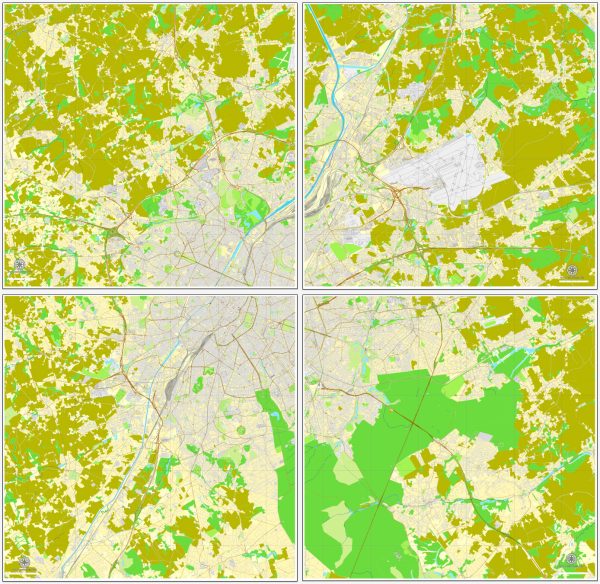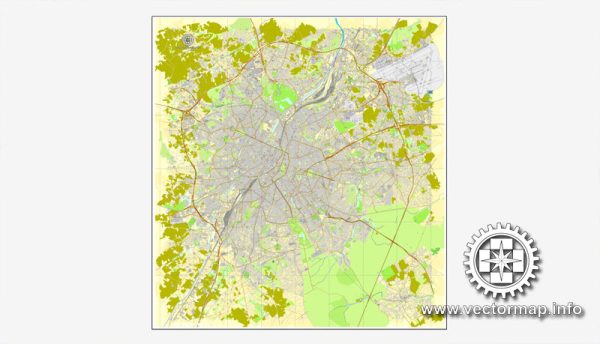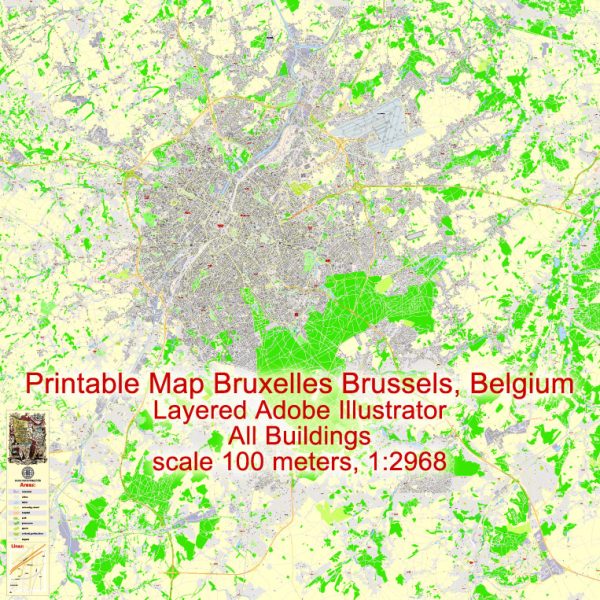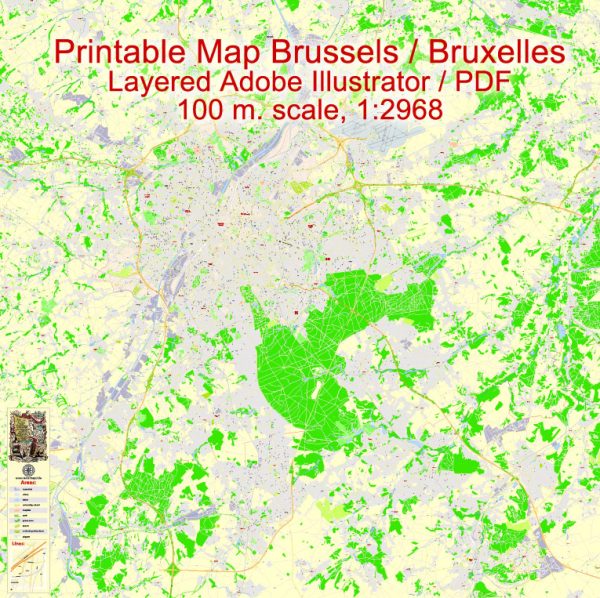Brussels, the capital of Belgium, has a rich political and economic history that reflects the broader developments in European history.
Vectormap.Net provide you with the most accurate and up-to-date vector maps in Adobe Illustrator, PDF and other formats, designed for editing and printing. Please read the vector map descriptions carefully.
Here’s a detailed overview of Brussels’ political and economic history:
Political History:
- Medieval Period:
- Brussels’ history dates back to the medieval period when it was a small village. The first mention of Brussels in historical records dates to the 10th century.
- It gradually developed into a market town and became part of the Duchy of Brabant in the 11th century.
- Burgundian and Habsburg Rule:
- In the 15th century, Brussels became the capital of the Duchy of Brabant under the Burgundian and later Habsburg rule. The city played a significant role in the Burgundian Netherlands.
- Spanish and Austrian Habsburgs:
- Brussels was a major center during the Spanish Habsburg rule in the 16th and 17th centuries. The city witnessed social and political turmoil, including the construction of the famous Grand Place during this period.
- The War of Spanish Succession in the early 18th century brought Austrian rule to Brussels under the Habsburgs.
- French Occupation and Independence:
- In 1795, during the French Revolution, Brussels was occupied by French forces. It became part of the French Republic and later the Napoleonic Empire.
- After the defeat of Napoleon in 1815, the Congress of Vienna united the Southern Netherlands (including Brussels) with the Northern Netherlands to form the United Kingdom of the Netherlands.
- Belgian Independence:
- In 1830, Brussels played a central role in the Belgian Revolution, leading to the country’s independence from the Netherlands. The city became the capital of the newly formed Kingdom of Belgium.
- World Wars and European Union:
- Brussels witnessed significant events during both World Wars, with the city being occupied by German forces.
- After World War II, Brussels emerged as a key location for the formation of the European Union (EU). The Treaty of Brussels in 1948 laid the groundwork for the Western European Union, a precursor to the EU.
- European Capital:
- Over the decades, Brussels solidified its position as a major political hub, hosting the headquarters of several EU institutions, including the European Commission and the Council of the European Union.
Economic History:
- Medieval Trade:
- Brussels was a flourishing trade center during the medieval period, known for its markets and trade fairs.
- Industrialization:
- The 19th century saw industrialization in Brussels, with the growth of industries such as textiles, food processing, and brewing.
- Post-WWII Reconstruction:
- After World War II, Brussels, like many European cities, underwent reconstruction and economic revitalization.
- EU Headquarters:
- Hosting the headquarters of major EU institutions has significantly contributed to Brussels’ economy. The city became a diplomatic and administrative center, attracting international organizations and businesses.
- Services and Globalization:
- In recent decades, Brussels has seen a shift towards a service-oriented economy, particularly in finance, international trade, and information technology.
- Multilingual Hub:
- Brussels is known for its multilingual and multicultural environment, further attracting international businesses and fostering economic diversity.
Brussels continues to be a crucial player in the political and economic landscape of both Belgium and the European Union. Its history reflects the broader European narrative of political changes, economic shifts, and the quest for unity.





 Author: Kirill Shrayber, Ph.D. FRGS
Author: Kirill Shrayber, Ph.D. FRGS